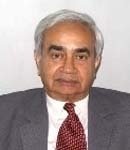Corruption in Bangladesh
10 Nov, 2003 · 1206
PR Chari, while highlighting the issue of corruption in Bangladesh, argues that its South Asian neighbours are not far behind
The timing could not have been worse. On October 8, the day the 49th Commonwealth Parliamentary Association Conference was to commence in Dhaka, Transparency International (TI) released its annual report awarding Bangladesh a score of 1.3 on the Corruption Perception Index (CPI), which was the lowest among 133 countries surveyed. Its CPI score was 1.2 in 2002 and 0.4 in 2001. [A scale of 1--10 applies with 10 being the least corrupt]. TI defines corruption as the abuse for public office for private gain, and includes government officials and politicians in the category of public officials. It increased its coverage from 91 countries in 2001 to 102 in 2002, and to 133 this year. Bangladesh remains at the bottom of all these lists.
TI was launched in 1995 and takes the help of 17 surveys from 13 independent institutions to effect its rankings. It collated the evaluations of eight agencies in the case of Bangladesh, which includes the World Economic Forum, Economist Intelligence Unit, Columbia University, World Market Research Centre and surveys for a multilateral development bank. Senior business leaders, domestic and international companies, senior managers, US-resident experts and banks were consulted. They were asked to specifically comment on undocumented extra payments for obtaining import and export permits, public utilities, contracts, business licenses, tax payments, loan applications, favourable regulations and judicial decisions. They were also requested to opine on the frequency of bribing and corruption as a constraint to business, pervasiveness of corruption among politicians and civil servants, severity of corruption within the State, and how widespread they found the incidence of corruption.
It is difficult for a government, therefore, to dismiss TI reports as inconsequential. This is exactly what was done by the BNP (Bangladesh National Party) – Jamaat government. M Saifur Rahman, Finance Minister, rejected the TI ranking as reflecting a “conditioned reflex.” He drew attention to the Anti-Corruption Commission bill that had been placed before Parliament and was being scrutinised by the Parliamentary Standing Committee of the Ministry of Law. Thereafter, he compared the TI report to an audit objection, which need not be true, and can be refuted. “Therefore, no one should use newspaper reports or surveys as the basis of perceptions to rank a country.”
This might sound familiar to South Asian ears. So would the ruling party-opposition party polemics that followed. Sheikh Hasina, leader of the Awami League, now in opposition, went on record declaiming, “The present BNP-Jamaat alliance government is totally corrupt and the report has projected their character.” Three years earlier, when she was Prime Minister in the Awami League government, she had rejected the TI report placing Bangladesh at the bottom of the list. Two years back, when Bangladesh was again rated as being the most corrupt country, Saifur Rahman had said that this was only proof of the Awami League’s earlier misrule , and that the BNP-Jamaat government had not been long enough in power to rectify matters. Clearly, neither party had or has the political will to grasp the nettle of corruption. Passing the blame on to each other is deemed sufficient to deflect public attention from their own inadequacies to deal with this basic problem of governance.
The situation in other South Asian countries is no different. TI placed India 83rd, Pakistan 92nd and Sri Lanka 66th in its latest CPI ranking. India’s position was 71 in 2002 and 2001, whilst Pakistan ranked 79 and 72 in these years. Corruption has an economic cost. It adds to delays, increases the production costs and reduces national competitiveness in the international market. It also retards the flow of foreign direct investment (FDI), compounding other inhibiting factors like internal security and the lack of infrastructure. The political costs are apparent. The need for electioneering funds is well recognized to be the fountain head of corruption in the body politic, but no answer has yet been found to mitigate this evil. Growing disparities between the corrupt nouveau rich, who ostentatiously indulge their consumerist passions, and the desperately poor, struggling against the most degrading humiliations of poverty, is a prescription for socio-political tensions. Forms of fundamentalism, religious or left extremist, are bound to flourish in this milieu.
Plebiscitary politics is the bane of South Asia. The party in government blames its predecessor for the country’s problems without grappling with them. The opposition believes its business is to oppose, irrespective of the merits of the case or the harm this unthinking opposition does to the nation. Elections can lead to a reversal of roles but no reform. Therefore, while deriving some gleeful satisfaction, from watching Bangladesh remain at the bottom of the TI list, South Asians governments might also reflect on the wisdom of the adage: “There, but for the grace of God, go I."


